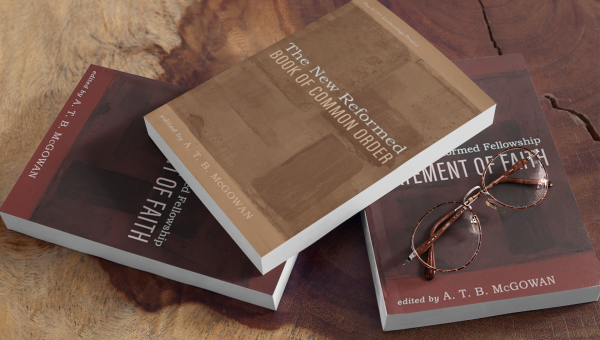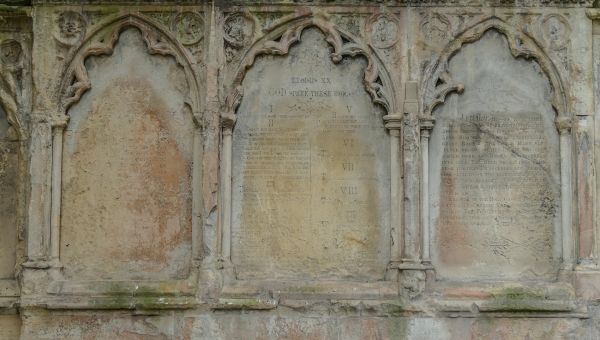
As WRF members, you will be aware of the WRF Statement of Faith, a confessional document for the 21st century, written by our Theological Commission and approved by the General Assembly of WRF. In this article, I want to direct your attention to two books which contain the Statement of Faith.
Add a comment
On April 1st and 2nd, 2025 the North American East Coast Regional Board of The World Reformed Fellowship will be sponsoring a two day consultation at the Fourth Presbyterian Church of Bethesda Maryland, on the theme of The Future of Denominationalism.
Add a comment
One of the purposes of the World Reformed Fellowship is to advance partnerships across Reformed groups, particularly with churches. We operate as a forum to assist the Reformed church to cooperate on missions and evangelism, theological and ministerial education, and doctrinal considerations as our world changes and in order to foster deeper unity in the bride of Christ.
Add a comment
While all believers acknowledge God is omnipotent and omnipresent, the Lord’s involvement in the spiritual regeneration of Christians separates those in the Reformed faith from Arminians.
The doctrine of election is frequently criticized, with people often attacking those in the Reformed circle for denouncing free will, the need for evangelism, or providing a sense of superiority.
Add a comment
A Review offered by Samuel T. Logan Jr., Ph.D.: Matthew V. Everhard, A Theology of Joy: Jonathan Edwards and Eternal Happiness in the Holy Trinity. Middletown, DE: JESociety Press, 2018. Pp. 235 $18.00, paper.
Is God angry with me? Or does God love me? Which is it?
Good and fair questions, often asked by many of us – sometimes publicly, often privately.
Add a comment
Add a commentFrom Editor: This article by Dr. Risimati S. Hobyane (South Africa) is a chapter in the upcoming WRF/WEA book on The Decalogue and is posted here in its entirety. Rev. Hobyane argues for the currency of the Decalogue in the modern world. In the course of his argument he looks at the role of the Decalogue in the New Testament, its relationship with the work of Christ and how it is treated in selected Reformed confessions.

From Editor: This article by Dr. Glenn N. Davies (Australia) is a chapter in the upcoming WRF/WEA book on The Decalogue and is posted here in its entirety. Rev. Davies challenges believers understand the importance of "the continuing application of the Decalogue in the life of the believer." He calls upon all Christians to repeat with the psalmist: "If your law had not been my delight, I would have perished in my affliction. I will never forget your precepts, for by them you have given me life. (Psalm 119:92-93)"
Add a comment
From Editor: This article by Dr. Thomas Schirrmacher (Germany) is a chapter in the upcoming WRF/WEA book on The Decalogue and is posted here in its entirety. Dr. Schirrmacher argues for the importance of understanding that the "Bible does not give us God’s commandments in a unilinear fashion; the Bible gives us God’s commands through a spectrum which runs from foundational statements to case examples."
Add a comment
From Editor: This article by Dr. Thomas K. Johnson (United States and Czech Republic) is an introductory chapter in the upcoming WRF/WEA book on The Decalogue and is posted here in its entirety. Dr. Thomas invites "you, as disciples and students who belong to Jesus, to join in the process of lifelong learning from our covenant God. Blessed are those who meditate on God’s law!"
Add a comment
From Editor: This article by Dr. Thomas K. Johnson (United States and Czech Republic) is a chapter in the upcoming WRF/WEA book on The Decalogue and is posted here in its entirety. Dr. Thomas challenges believers not to look upon God's law with the terrible feeling of those who "only know its condemning use", but to understand that "once we really know God's grace, we can see what a treasure God's law is... We can say with the psalmist, 'Oh, how I love your law' (Psalm 119:97)."
Add a comment
From Editor: This article by Professor Pierre Berthoud (France) is a chapter in the upcoming WRF/WEA book on The Decalogue and is posted here in its entirety. In the chapter, Prof. Berthoud offers a very important reflection about the nature and origin of the Commandments. He masterfully shows how they are "an amazing and challenging invitation to reconsider and practice, within a dismantled and broken world that has lost its bearings, the “law of Christ” as fully manifested and accomplished in Jesus of Nazareth!"
Add a comment
Is the use of some kind of conflict resolution tied to legal process sensible and justified (e.g., witnesses, defense, judges, independent appraisers, mediators, legal transcripts)? Many Christians object, at least in theory, to going to court or to using the methods of a constitutional state. They object all the more that Christians go to court against each other or use the methods of the constitutional state in connection with Christian activities or churches.
Add a comment